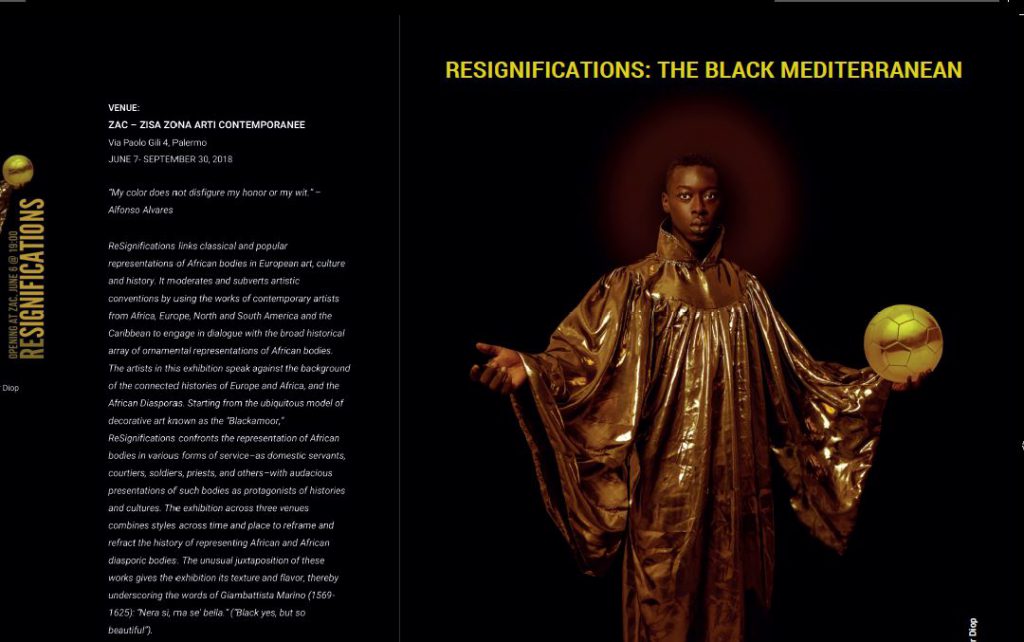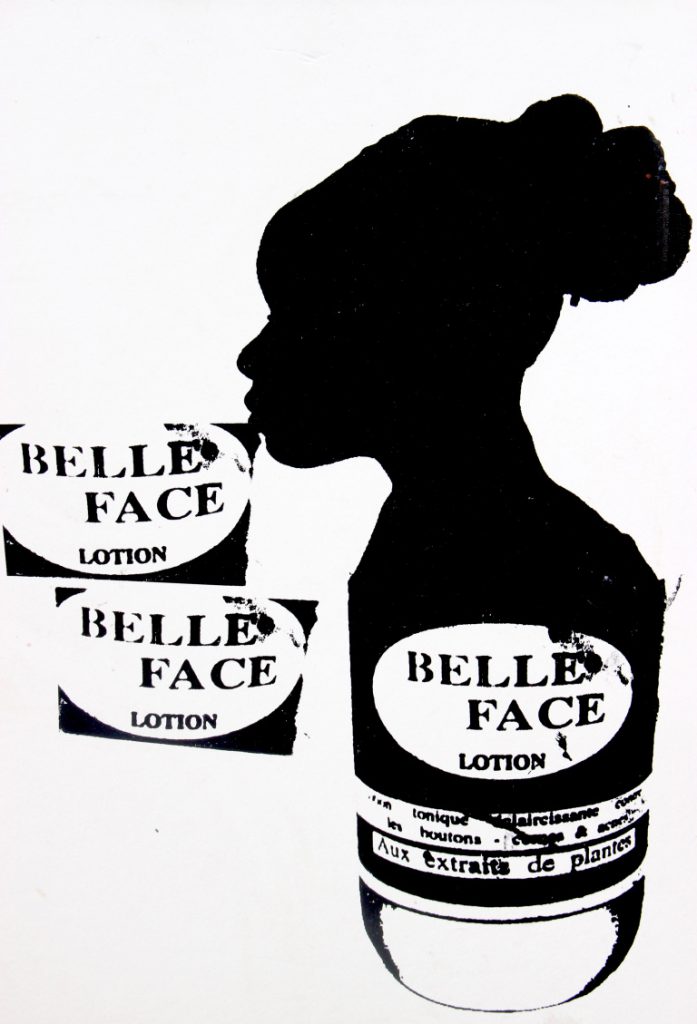EVENTS: RESIGNIFICATIONS, THE BLACK MEDITERRANEAN
Last week I was in Palermo for Resignifications: The Black Mediterranean. The conference was the last of a string of international events organised by Tisch School of the Arts, New York, Florence: La Pietra Dialogues, NYU Institute of African American Affairs, Harvard’s Hutchins Center for African & African American Research devoted to black art, cultural theory, and practice. Past conversations have included the Black Portraitures series that took place in New York, Paris, and Florence.

Wole Soyinka opened the works and lent his collection of African art for the exhibit Antiquities Across Times and Place. The conference, which took place on the 7th and 8th of June, was hosted in the beautiful Palazzo Sant’Elia and Puppet Museum located not far from the city’s harbour. The latter is a critical site of encounter in the Mediterranean and a poignant symbol of the concerns that inspired the event. Having always been a crucial site of the African diaspora since the classic era, Sicily has always been a bridge between Africa and Europe.

As stated by the organisers: Palermo, world-renowned for its diverse artistic and cultural heritage, is today one of the major ports of refuge for the countless migrants who arrive in Europe in flocks from the African shores. The conference provided a space to discuss about representation, empowerment, migration, and citizenship at a critical time for the history of Europe and the Mediterranean Sea.
The speakers’ line-up was great. Have a look at the booklet here: ReSignifications-Conference-Program-Booklet
It was my greatest pleasure to be able to introduce the blog on that occasion. I spoke on the 8th and focused my intervention on the notion of the Mediterranean as a space of crossing for cultural entrepreneurs who use fashion to introduce a heterogenous, diverse, and profitable new imagination of the continent. I used the information and data I have been able to gather in the past years through interviews and research to stress that, indeed, afrosartorialists are to all effects and purposes businesspersons who operate within a neocapitalist and neocolonial environment and push for more inclusivity exploiting the means made available to them by the digital economy.


As my case study, I presented the work of Diana Ejaita. Diana, which I featured in the blog a couple of years ago, is an Italo-Nigerian textile designer and illustrator who launched the fashion brand WearYourMask in 2014. Although she is currently based in Berlin, Diana states that her work is inspired by her Italian upbringing and the constant lack of representation and cultural references she experienced as a mixed-race child in Northern Italy the 1980s.


Diana embeds elements of the Nsibidi ideographic script in her textiles as a way to claim a voice and circumvent the limitations of both her cultures, seeing how women and common people are supposedly forbidden from using the ideograms. Diana’s practice exemplifies ways to engineer culture in creative and profitable ways, while making space for new voices and pressing concerns in the fashion world.

Cover image: Omar Victor Diop, St Benedict of Palermo, 2014